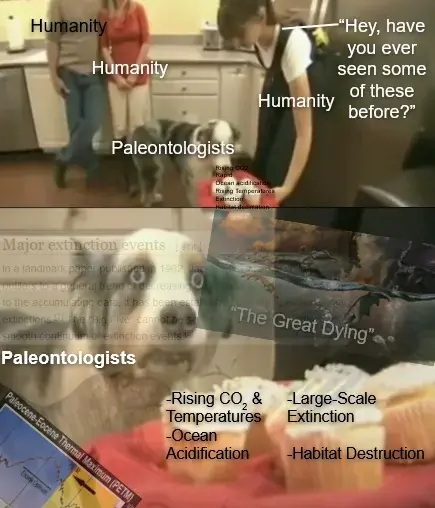this post was submitted on 09 Nov 2023
451 points (97.5% liked)
Science Memes
10940 readers
3577 users here now
Welcome to c/science_memes @ Mander.xyz!
A place for majestic STEMLORD peacocking, as well as memes about the realities of working in a lab.

Rules
- Don't throw mud. Behave like an intellectual and remember the human.
- Keep it rooted (on topic).
- No spam.
- Infographics welcome, get schooled.
This is a science community. We use the Dawkins definition of meme.
Research Committee
Other Mander Communities
Science and Research
Biology and Life Sciences
- [email protected]
- [email protected]
- [email protected]
- [email protected]
- [email protected]
- [email protected]
- [email protected]
- [email protected]
- [email protected]
- [email protected]
- [email protected]
- [email protected]
- [email protected]
- [email protected]
- [email protected]
- [email protected]
- [email protected]
- [email protected]
- [email protected]
- [email protected]
- [email protected]
- [email protected]
- [email protected]
- [email protected]
- !reptiles and [email protected]
Physical Sciences
- [email protected]
- [email protected]
- [email protected]
- [email protected]
- [email protected]
- [email protected]
- [email protected]
- [email protected]
- [email protected]
Humanities and Social Sciences
Practical and Applied Sciences
- !exercise-and [email protected]
- [email protected]
- !self [email protected]
- [email protected]
- [email protected]
- [email protected]
Memes
Miscellaneous
founded 2 years ago
MODERATORS
you are viewing a single comment's thread
view the rest of the comments
view the rest of the comments

Is it actually self-stabilizing though? Or I guess it depends what you mean by that. AFAIK the earth has been in many different stages lasting for long times, changing from one to the other due to various factors. But it's unlikely earth will return to a pre-industrial state, even after millions of years, especially if we keep emitting CO2, I believe.
But if you just mean that a new plateau will be reached eventually, then sure, a mass extinction will still happen though.
CO2 usually stabilises within tens of millions of years and would probably go back to a pre industrial level.
If the earth enters a state where most of the water is locked up in glaciers ('snowball earth'), then it is unlikely that it will be able to exit it. Similarly, if it becomes too hot, it is again unlikely that it will return to what it is now. The earth can handle small disturbances in CO2 / temp, but a sufficiently large swing can lock us into one of the extreme situations.
True, however there were extinctions caused by far larger increases in CO2 than we have today and it didn’t happen. So at this moment it does not seem likely that we will achieve it this time.
Ah, fair. (Unless we melt the permafrost, then all bets are off.)
https://youtu.be/uxTO2w0fbB4?si=2xEneFo4zUuIwMlw